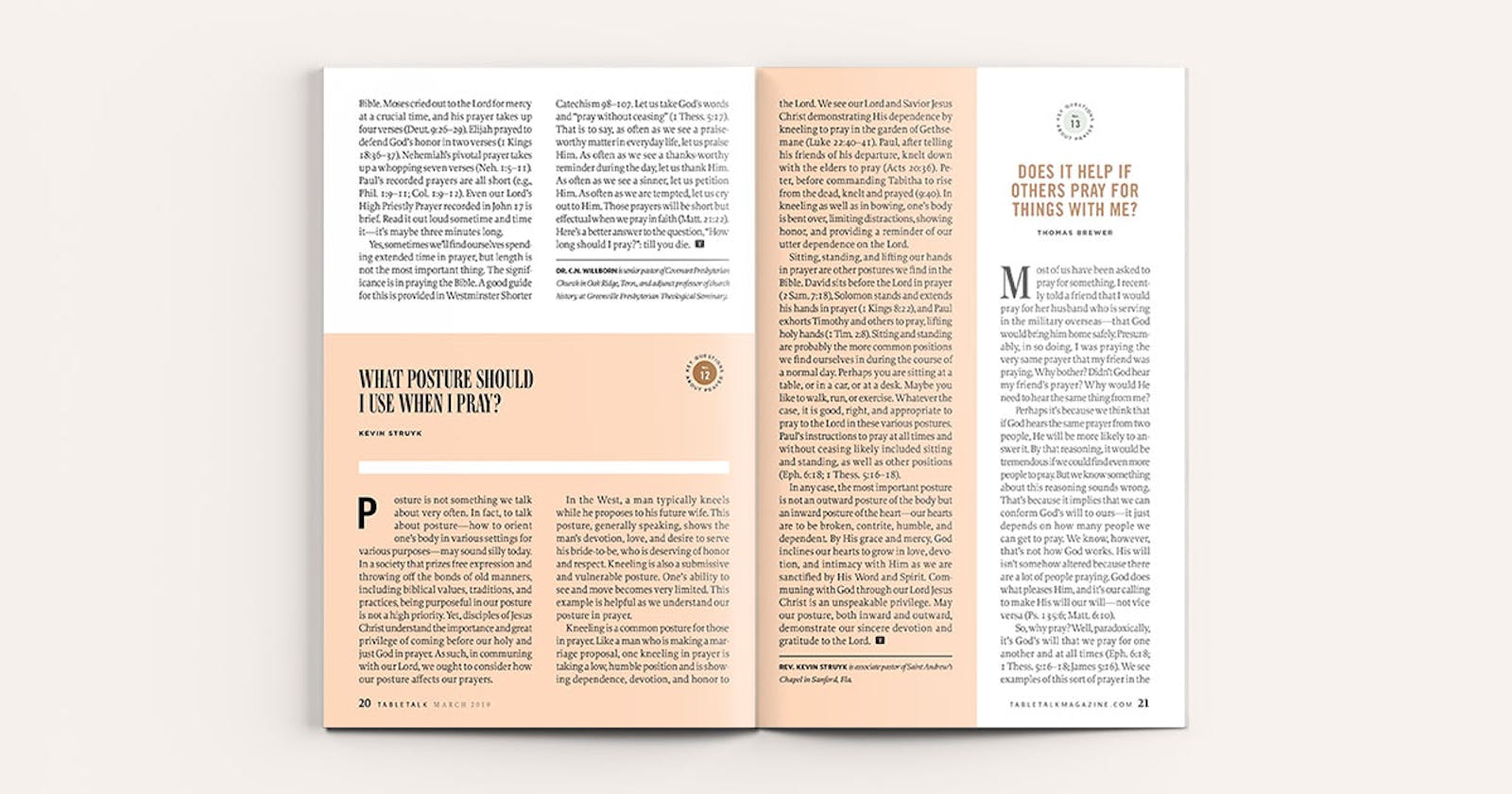
Request your free, three-month trial to Tabletalk magazine. You’ll receive the print issue monthly and gain immediate digital access to decades of archives. This trial is risk-free. No credit card required.
Try Tabletalk NowAlready receive Tabletalk magazine every month?
Verify your email address to gain unlimited access.
Most of us have been asked to pray for something. I recently told a friend that I would pray for her husband who is serving in the military overseas—that God would bring him home safely. Presumably, in so doing, I was praying the very same prayer that my friend was praying. Why bother? Didn’t God hear my friend’s prayer? Why would He need to hear the same thing from me?
Perhaps it’s because we think that if God hears the same prayer from two people, He will be more likely to answer it. By that reasoning, it would be tremendous if we could find even more people to pray. But we know something about this reasoning sounds wrong. That’s because it implies that we can conform God’s will to ours—it just depends on how many people we can get to pray. We know, however, that’s not how God works. His will isn’t somehow altered because there are a lot of people praying. God does what pleases Him, and it’s our calling to make His will our will—not vice versa (Ps. 135:6; Matt. 6:10).
So, why pray? Well, paradoxically, it’s God’s will that we pray for one another and at all times (Eph. 6:18; 1 Thess. 5:16–18; James 5:16). We see examples of this sort of prayer in the lives of Jesus and the Apostles (John 17; Col. 1:9). The commands are simple: Pray. Keep praying. Pray for others.

It’s not just that it’s God’s will for us to pray, of course. God also wants to make His name known in our lives (Ps. 46:10). One of the ways He does this is through prayer. For example, when the church in Acts prayed for Peter to be released from prison, he was miraculously delivered by an angel (Acts 12:1–17). Had God already determined to release Peter before His people prayed? Yes. Did God answer their prayers? Yes. Was their faith strengthened, were their lives blessed, and was God’s name glorified? Yes. Our God is sovereign over all and knows our requests before we even say them (Ps. 139; Matt. 6:8). Yet God chooses to answer the prayers of His people. It’s the way God has set up the universe. When His people pray, He listens. God answers in His own time and in His own way. Peter certainly didn’t expect an angel. Regardless, whatever God chooses to do, we trust Him and give Him the glory.
So, does it help if others pray for things with me? No, it doesn’t help alter God’s will, but yes, it does help. It helps because God chooses to listen to and act according to the prayers of His people when they pray together according to His will and in His Spirit. The Spirit, of course, intercedes for us, knowing God’s will perfectly (Rom. 8:27). Praying with others pleases God, glorifies Him, and helps conform us to the image of Christ. Jesus, after all, prayed for Himself and others. We should go and do likewise.
